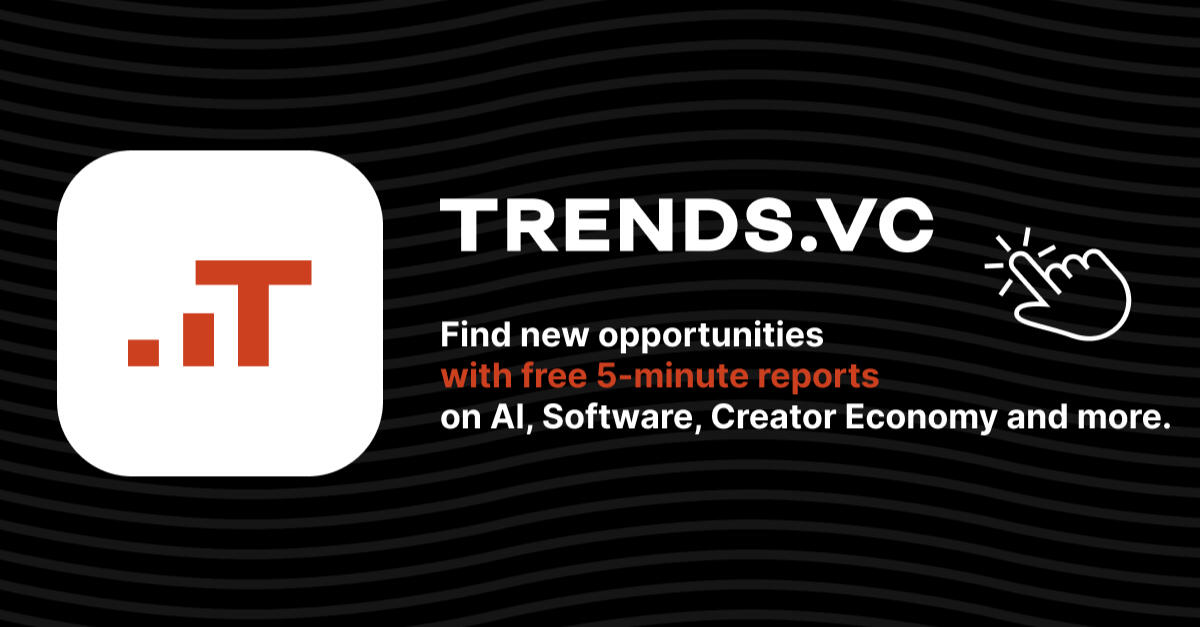- The Modern Warfare
- Posts
- Elon Musk's Treasury Triumph: Can He Revolutionize U.S. Spending and End the Penny?
Elon Musk's Treasury Triumph: Can He Revolutionize U.S. Spending and End the Penny?
Navigating New Frontiers in Government Efficiency and Coinage Reform
Paying the bills
Diversified Crypto in One Stock – 60+ cryptocurrencies, one investment.
Gain exposure to 60+ cryptocurrencies in a single stock. DeFi Technologies (CBOE: DEFI OTC: DEFTF) offers broad access to the $3T crypto market—without the complexity of wallets or exchanges.
Links We Like
In the last 2 weeks, GSA has repealed 23 internal directives/policies, totaling 74,727 words, including a 4,890 word policy that outlined “GSA’s vision to build a high performing, culturally competent workforce that represents the diversity of the American public, values a… x.com/i/web/status/1…
— Department of Government Efficiency (@DOGE)
8:49 PM • Feb 6, 2025
Some people are good at knowing what to do on their own; they have good mental maps. Maybe they acquired them from being taught; maybe they were blessed with an especially large dose of common sense. Whatever the case, they have more answers inside themselves than others do.… x.com/i/web/status/1…
— Ray Dalio (@RayDalio)
4:09 PM • Feb 6, 2025
The Battle Over Government Spending and the Future of the Penny
The U.S. government is facing an unprecedented moment in financial oversight as Elon Musk’s team has been granted access to the Treasury Department’s payment system. This move gives Musk and his allies a powerful tool to scrutinize and potentially limit government spending, a responsibility that has sparked both interest and controversy.
At the same time, another debate about financial efficiency is brewing—this time over the continued existence of the penny. Despite its declining use, the penny has persisted for generations, surviving numerous attempts to phase it out. Now, with Musk’s influence extending into financial policy, some believe he could be the force that finally brings an end to what many consider an outdated and economically inefficient coin.
These two seemingly separate developments—the tightening of government financial oversight and the push to eliminate wasteful spending, even down to small denominations of currency—highlight a broader shift in America’s economic policies. Both issues raise important questions about government efficiency, fiscal responsibility, and the role of technology in shaping financial decisions.
Elon Musk and the Treasury’s Payment System: A New Era of Oversight?
Elon Musk’s growing influence in the federal government took another step forward when his representatives were given access to the Treasury Department’s payment system. This system handles the distribution of federal funds for everything from government contracts to social programs. Now, Musk’s team—under the banner of the Department of Government Efficiency—has the ability to monitor and review federal spending at an unprecedented level.
Treasury Secretary Scott Bessent approved this access despite internal resistance. A top Treasury official, David Lebryk, reportedly opposed the move and was placed on leave before abruptly retiring. While Musk’s team does not yet have the ability to block payments, their involvement signals a significant shift in how government spending is reviewed and scrutinized.
The move raises several key questions:
Will this oversight reduce waste and fraud, or is it a politically motivated attempt to limit government spending?
How much power should private-sector figures like Musk have over federal financial decisions?
Could this access be used to reshape budgetary priorities in ways Congress never intended?
Proponents argue that Musk’s involvement could lead to greater efficiency and accountability. By analyzing spending patterns and identifying wasteful expenditures, his team could help streamline government operations. However, critics worry about the potential for overreach, as well as the legal and ethical implications of giving unelected individuals access to critical financial systems.
The Case Against the Penny: An Obsolete Relic of the Economy?
While Musk’s Treasury involvement focuses on cutting excessive government spending, another financial inefficiency has come into focus: the continued production of the penny. The debate over eliminating the penny has been ongoing for decades, but now, with Musk’s influence expanding into financial policy discussions, some believe he could be the one to finally push the issue forward.
The case against the penny is compelling.
Production Costs: In fiscal 2024, the U.S. Mint reported that it cost 2.72 cents to produce a single 1-cent penny, marking the 17th consecutive year in which production costs exceeded the coin’s value.
Lack of Use: While pennies are still distributed in change, they are rarely spent. Instead, they end up in jars, drawers, and coin-counting machines, effectively removing them from circulation.
Decline of Cash Payments: With only 16% of transactions in the U.S. made using cash, the need for small denominations is rapidly decreasing. Digital payments, credit cards, and mobile wallets have become the preferred method for most consumers.
Historical Precedent: The U.S. discontinued the half-cent coin in 1857 when it was still worth nearly twice as much as today’s dime. This raises the question: if a half-cent coin was unnecessary then, why is a penny necessary now?
Refind - Brain food is delivered daily. Every day we analyze thousands of articles and send you only the best, tailored to your interests. Loved by 510,562 curious minds. Subscribe. |
Could Musk Influence the Penny Debate?
Elon Musk has long been an advocate for efficiency and technological advancement. His recent access to Treasury systems and his broader interest in financial policy could make him a key player in the fight to eliminate the penny.
While Musk himself has not directly called for the penny’s removal, his association with economic efficiency and waste reduction makes it easy to see why he might support such a move. If his influence in the Department of Government Efficiency continues to grow, his team could push for the elimination of coins that serve little practical purpose but still cost taxpayers millions of dollars annually.
However, the debate over the penny is not just about cost—it's also about public perception and nostalgia. The penny has been a fixture of American currency for over a century, and past efforts to phase it out have been met with public resistance. Many Americans still view the coin as an important symbol, despite its declining usefulness in everyday transactions.
A Broader Discussion on Government Waste
Both of these developments—the scrutiny of federal spending and the debate over the penny—reflect a broader conversation about government waste and financial responsibility.
Musk’s involvement in the Treasury raises questions about how much oversight should be placed on government payments and whether private entities should play a role in monitoring federal expenditures.
The debate over the penny highlights the inefficiencies in government decision-making and how difficult it is to eliminate outdated practices, even when they are no longer economically viable.
These discussions go beyond just Musk’s influence or the future of a single coin. They point to a deeper need for systematic financial reform that prioritizes efficiency, transparency, and adaptability in a rapidly changing economic landscape.
Conclusion: The Future of Financial Reform in the U.S.
The growing influence of Elon Musk in the Treasury Department and the renewed debate over the penny both highlight a shift toward greater scrutiny of government spending. Whether it is reviewing federal payments to eliminate waste or questioning the continued production of an outdated coin, these developments raise critical questions about how financial policy should evolve in the modern era.
While Musk’s role in the Treasury is still in its early stages, his track record suggests that his team will aggressively push for reforms aimed at cutting costs. Whether this leads to genuine improvements in efficiency or simply introduces new political and economic tensions remains to be seen.
Similarly, the penny's continued existence serves as a reminder that financial reform is often hindered by tradition, public sentiment, and bureaucratic inertia. If the U.S. Mint is unable to eliminate a coin that costs more to produce than it is worth, how can we expect larger financial inefficiencies to be addressed?
Ultimately, both issues point to a fundamental challenge: balancing innovation with regulation, efficiency with oversight, and progress with tradition. The coming months will reveal whether these efforts will lead to meaningful financial reform or whether they will become just another chapter in the ongoing debate over government spending.
If you enjoy this newsletter, please consider sharing it with your friends and business contacts by clicking the button below. ⬇️
Thank you for reading this far. Please share your thoughts and join the conversation in the comment section below.
About The Modern Warfare
We strive to provide insightful and unbiased reporting on the most pressing issues of our time. Subscribe to our newsletter to stay informed and ahead of the curve.
Stay informed. Stay vigilant. Stay ahead.
The Modern Warfare Team
Disclaimer: This newsletter is for informational purposes only and should not be construed as financial or political advice.






